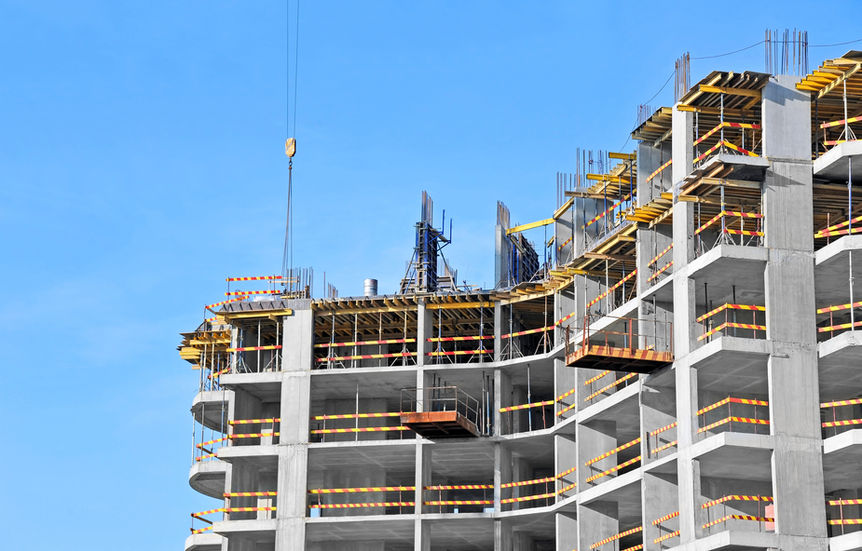Planning to sell off your home or thinking of purchasing a subsale property? Read up on property valuation.
In Malaysia, a property/home valuation can be defined as an exercise which is carried out to determine the current market value or selling price of your property. It is done by a valuer, who is a professional registered with the Board of Valuers, Appraisers and Estate Agents & Property Managers (BOVAEP) Malaysia under the Seventh Schedule of the Valuers, Appraisers and Estate Agent Rules 1986.
What is a property/home valuation?
There are several situations where a property valuation is necessary:
You require extra cash and plan to refinance your property to capitalise on the increase in property value after a few years.
You want to purchase a subsale home and is looking to obtain financing from a bank.
There is a misconception that for the purchase of your first or second home, you could obtain a 90% financing based on the property selling price or the price agreed between you and the seller. In reality, banks will benchmark your 90% loan (mortgage) based on the report obtained from a registered valuer.
Banks may be financial providers but they do not have the authority to value your property. Instead, they will engage a valuer to do so. Let’s say you have entered into a sale and purchase agreement to buy a house for the sum of RM600,000. You have applied to Bank A for a home loan. Bank A then appoints one of its panel valuers to value your target property and prepare a written valuation report. Upon evaluation, the valuer values the home for the sum of RM550,000 only. Based on this valuation report, the purchaser can obtain a loan of up to 90% of RM550,000 and not 90% of RM600,000.
The valuation fees in Malaysia are as follows. It is usually borne by the buyer:
For first RM100,000.00 =0.25%
Next residue up to RM2 million = 0.2%
Next residue up to RM7 million = 0.167%
Next residue up to RM15 million = 0.125%
Next residue up to RM50 million = 0.10%
Next residue up to RM200 million = 0.067%
Next residue up to RM500 million = 0.05%
Next residue more than RM500 million = 0.04%
In Malaysia, valuers usually adopt the sales comparison method which takes into account recent transacted property prices from the Valuation and Property Services Department (JPPH). However, they will make the necessary adjustments based on the condition of the property and value-added from renovations (if any). Therefore, properties in the same area located next to each other will not necessarily share the same value. Apart from that, factors such as the property’s location and nearby amenities will be taken into account too. These will be elaborated below.
Of course, property sellers could also get a professional valuation to ascertain the minimum selling price that they should settle for when negotiating with a potential buyer. There is good news for those looking to sell of their residential properties in the next year or so – The government recently announced that sellers who dispose of their property between June 2020 and 31 December 2021 will be exempted from paying the 5% (or more) Real Property Gains Tax (RPGT)!
What are some of the factors which determine how much your house is worth?
Clearly, valuation is a critical element in the process of buying and selling properties that many often overlook. A better understanding of what makes your property more (or less) valuable would help you maintain the long term value of your home or assist in your purchasing/investment decision.
Below are 4 factors that may have a significant impact on your residential property’s valuation:-
1. Location
It is the oldest cliché in the book, but this is probably the prime factor in determining the value of your property. For example, in Klang Valley, the value of your property is generally higher the nearer you are to the city centre. That is why home prices in the Kuala Lumpur central business district have skyrocketed in the last decade.
But location is linked to numerous other factors too. If your home is within the vicinity of something undesirable – such as a cemetery, power stations or a waste disposal area – that could be detrimental to the property’s value.
2. Accessibility and amenities
If your property is near a newly opened major highway, that might increase its value. A good road network and presence of public transit nodes such as LRT and MRT stations are huge plus points these days. Many aspiring homebuyers who live in urban areas base their purchasing decisions on the commute time to their workplace!
Proximity to conveniences such as clinics and private hospitals, educational institutions, banks and shopping malls, international or private schools may boost value too. These ‘hotspots’ make your home and the neighbourhood all the more livable.
3. Maintenance and renovations
This goes back to the previous points of age and quality. As the property gets older, it could face problems and issues that need addressing – from plumbing to roofing, just to name a few. However, a building that is made of high-quality materials might hold together longer before having any issues.
This is where regular maintenance comes in. Just like how you inspect and service your car on a regular basis, properties also need to be checked constantly for any defects. A property that is well-maintained would fetch a better valuation in the long run than one that is completely neglected.
A valuer’s insight: Valuers will take into account renovation works done which enhances the livability and aesthetic value of the property such as:
a) change of flooring;
b) permitted extension;
c) built-in kitchen cabinet(s) and wardrobe(s);
d) plaster ceiling(s)
e) grill(s)
f) alarm system(s)
g) auto gate system.
4. Quality of construction
The quality of the construction of your home or workmanship is another key element in preserving the value of your asset. Not to mention, the quality of construction materials used – a building that is made of high-quality materials might hold together much longer before having any major issues.
We often hear about homes that were constructed many decades ago but still fetch a premium price due to the quality of the building materials, workmanship and structural design. The decades-old terrace homes in Taman Tun Dr Ismail (TTDI) and Bangsar serve as great examples – these units might be bread and butter homes, but they are now going for at least RM1.5 million each.
@https://www.iproperty.com




















































































![[UPDATED] Real Property Gains Tax (RPGT) Act 2021 in Malaysia](https://static.wixstatic.com/media/42661b067ebe4806a785cab2668ede60.jpg/v1/fill/w_327,h_250,fp_0.50_0.50,q_30,blur_30,enc_avif,quality_auto/42661b067ebe4806a785cab2668ede60.webp)
![[UPDATED] Real Property Gains Tax (RPGT) Act 2021 in Malaysia](https://static.wixstatic.com/media/42661b067ebe4806a785cab2668ede60.jpg/v1/fill/w_326,h_249,fp_0.50_0.50,q_90,enc_avif,quality_auto/42661b067ebe4806a785cab2668ede60.webp)







































































































































Comments